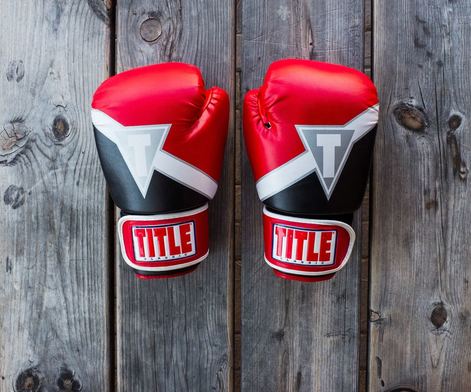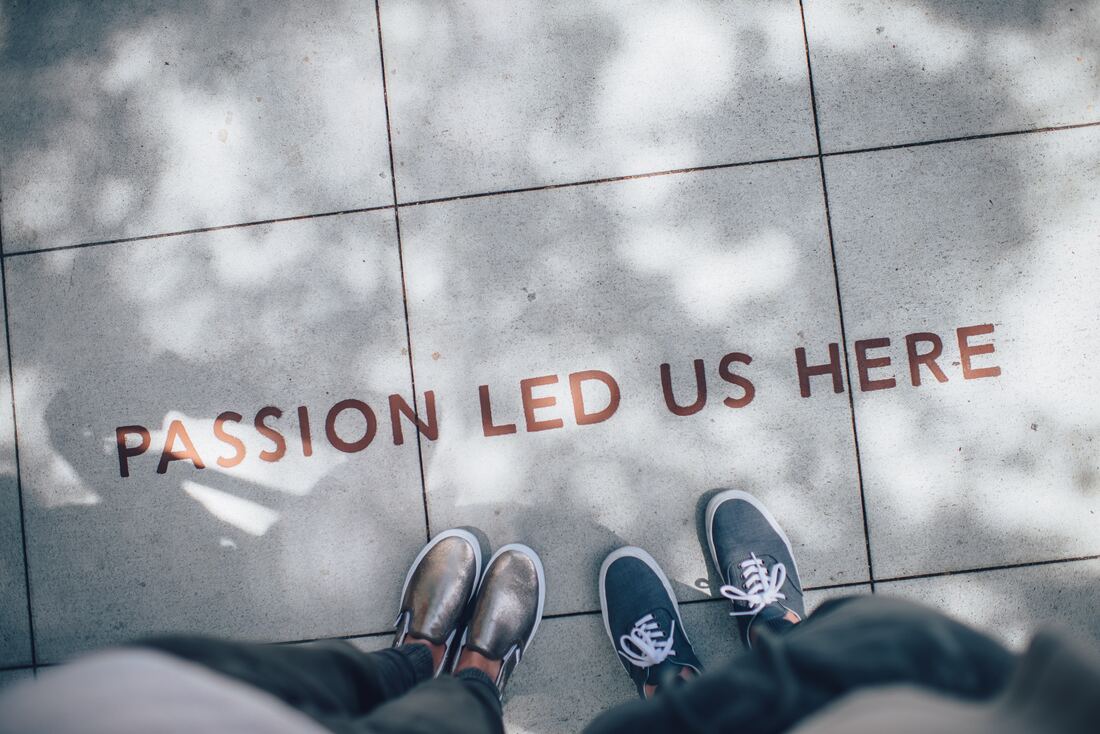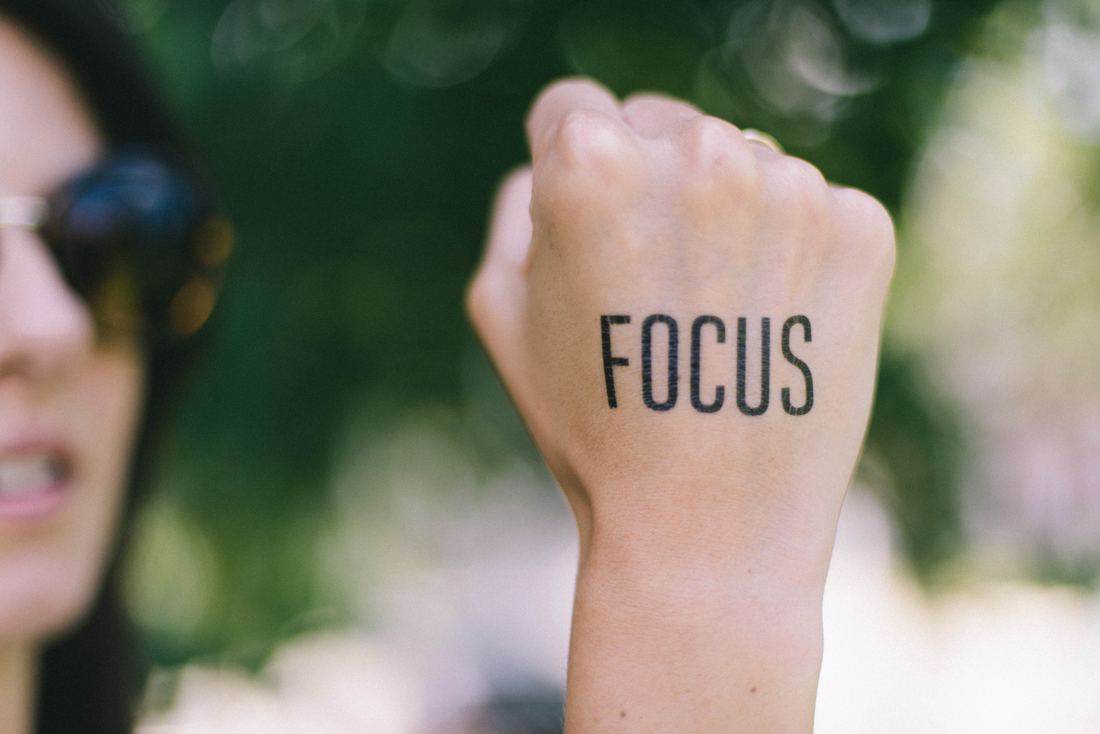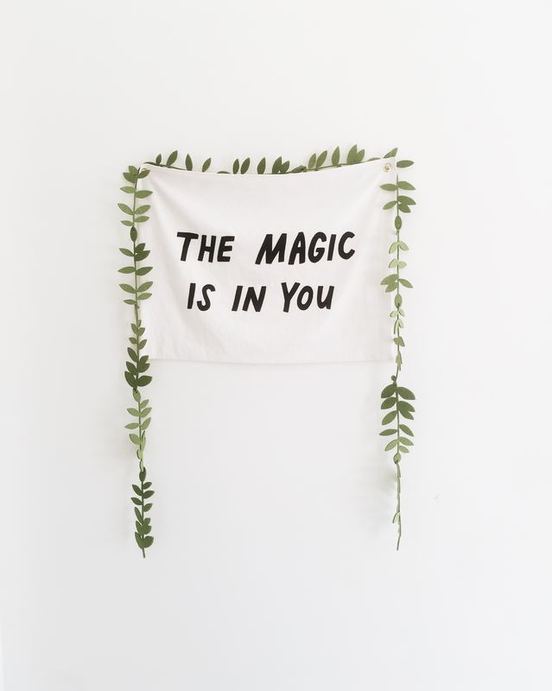 Spring is here and you'll see new shoots appearing everywhere.
This is when you'll start to think about changes to your life. Let's forget those cold, wet, dark days of January. And the new year resolutions that didn't quite happen. How about a fresh start? What changes do you want to create? Being very simplistic, and without over-thinking, if you had three wishes, what would they be? I'm sure that one popped into your mind very quickly. What do you need to do to start achieving that?
Can you write the answers down? They'll remind you to take action. Personal growth is worth pursuing. How would you define yours? Learning something new? Changing your behaviour in some way? Changing your career? Working on your wellbeing? Creating a better work-life balance? And if you need help, why not arrange a chat?
0 Comments
Career change What do people think when they hear those words? What do YOU feel? It might be a rush of excitement. Or a deep feeling of unease in your stomach. You might think 'If only...' Because although career change is more and more acceptable, it's still hard for some people. They worry that family and friends might see it as 'giving up' or being unstable in some way. The midlife crisis. But is that a bad thing? It's becoming rarer to stick at the same career for 45 years (and counting, as the retirement age increases.) Soon, we'll be working till 70 as the norm, sometimes from choice, sometimes from financial necessity. So why should the career (a degree or professional training) you chose in your late teens be the one you have until you're 70? You've changed. The world has changed. But has your work changed? Many of my clients want to do something different. But they are terrified. This is normal. No matter how unsatisfactory something is in our lives, taking that step to something else, unknown, is also difficult. My role as a coach is to help my clients make these decisions. Often, I find clients are afraid to make changes because of their lack of self-belief or other negative beliefs. It's possible to change all of this, using powerful coaching strategies. Are you ready to try? Ready for find your passion? Is career change right for you now?
I work with many professionals who are in the midst of thinking about career changes. They often have mixed emotions. Which of these can you identify with?
Read those again. Spot anything? Apart from the first point, they are negative statements. But they are typical of what I hear on a daily basis. Nowadays, it's more common to change careers at least once, if not two or three times over a working lifetime. I did it myself around fifty. Yes, I felt sad at turning my back on something I'd always wanted to be - a teacher- but, for a combination of reasons, I knew I didn't want to carry on until retirement. What's your driver? I ask my clients 'Can you imagine doing your current job forever, until you retire maybe around seventy? (The age is going up and up...) Many recoil in horror. That's their wake-up call. Some shrug and say 'Maybe', but with little conviction. I'm not a careers adviser At that point I don't try to slot them into a new job. I'm not a careers adviser. But what I focus on is what makes them tick. What gets them up in the morning? If they aren't leaping out of bed full of enthusiasm, what needs to change? Using myself as an example (sorry- this is not really me,me,me) I knew what drove me was helping people. When I decided to be a teacher - at around 17- I was also considering being a physio. I like helping people and seeing them progress. And coaching followed a similar path; helping my clients reach their goals. So what makes you tick? Don't think of a job, but think about who you are and what excites you. Are you ready? On a scale of 1 to 10, how positive do you feel about your job? If it's lower than 6, you could be ready for change. What have you done to help you decide on another career?
Working through these kinds of things are what I do with my clients. They don't come to me stuck and expect me to say 'Okay, maybe you should retrain as X.' They do the hard work of seeing what's out there, but I help pull down the barriers that they've often put up. What could you do with or without me to help you? Why I love September.
For me, it's always about new starts. More so than January. It's years since I was teaching, but as the new year starts for students, I can't help feel that same thrill. The days are still warm and between now and dark, dank November it's a perfect time to focus on your life and changes you want to make. I've been very busy in my garden lately: tidying it up, cutting back dead wood, pruning shrubs and getting rid of anything that's that's not quite where I'd like it. And it's easy to use this analogy for our lives.
How to focus Knowing what you want to change is the first step. Making that happen is another. Many of my clients have issues with time-management. I fully understand. My focus this autumn is on self-development. Today I've started a new online course; writing fiction. I've already had two non-fiction books published and love mentoring my writing clients. But, with two half-written novels on the back burner, I want to develop my own writing. It's a 3-hours a week commitment. Doesn't sound much, but balancing that with work, family and friends, and an hour's exercise every day, I've got to find the time somewhere. For me, timetabling works. I give myself a time. So, today I am committing to my course from 2-3pm. It's the only way! (I may have Plan B so that if something unexpected crops up I can still fit in that hour.) What about you? If there is something you really want to achieve- a new job, better health and wellbeing, studying, spending more time with friends- how will you find your focus? I've recently completed an online course, Food as Medicine, by Monarsh University, renowned for their research into diet and health. Their research into gut disorders has been used worldwide and helped people many people. The dietitians deliver the course via videos and there are plenty of lovely shots of food! Why did I do the course? I've been interested in food and how it affects our health for decades. It's not that long ago that food intolerance was dismissed as 'cranky' but is now accepted. Now that science has progressed we know much more about the benefits of individual foods on our body. What did I learn on the course? The course inspired me to make some small changes to my own diet. I consider myself a healthy eater already (most of the time) but, interestingly, the Australian public health targets for fruit and vegetables are higher than in the UK; 2 fruits and 5 veg a day. That, for most of us, is a high target. I realised that the way to achieve the target of 7 portions a day was with some careful planning, whereby every meal had to have either fruit or veg in it. The other fascinating aspect was portion size: did you know that most photographs of food and drink (pasta and wine especially) show portions that are three times the recommended size for health? We all know we should eat more fruit and veg but listening to the dietitians explain how an avocado or an apple can prevent damage to our cells is fascinating. Also covered were:
And did you know that using mindfulness about food can help you eat healthily and control your weight? How this can help you Many of my clients want to improve their overall wellbeing - mental and physical health. But as we all know, it's easy to grab food on the hoof, reach for a ready meal, eat out and indulge. If you want to improve your chances of good long term health, let's work together on what changes- large or small- you can make to your own diet. See more here. If you'd like some help to optimise your own healthy eating, contact me here. How's your mojo?
If you are a woman anywhere between 45 and 60, you could well be hunting for it. Mojo- enthusiasm, excitement, joie de vivre. Call it what you want; it's that get up and go feeling that you might have had in bucketfuls in your twenties. Sometimes in our forties and fifties it goes missing, often due to hormonal changes. At the same time, we may lose self-confidence, children fly the nest, parents become ill and life can seem very stressful, especially if menopause is kicking in too. 'Who'd be a woman!' is a comment my clients often make. A lovely success story Well, being a women can be good if you take control. A client - Lizzy - (not her real name for reasons of confidentiality) had been coming to me for coaching for some time. I am delighted for her; she's gone from being a couch potato to running 5K. And before you stop reading (you don't want to run 5K), let me tell you that was Lizzy's goal, not mine. I didn't even mention running. Lizzy didn't set out to run 5K. In fact she hates running, walking and almost any form of exercise, partly because she is in chronic pain with a health issue. But as part of her coaching with me, she admitted she wasn't exercising as much as we all ought to, she'd put on a little bit of weight, and felt generally 'Bleugh'. How I helped Lizzy Lizzy was open to some suggestions and advice. We devised a do-able exercise plan- gently does it - and some changes to her diet. Nothing drastic, but when she mentioned the issues she was having with hot flushes, I told her about how sugar and alcohol don't help at all. She reduced her drinking to now and then and ditched the sweets. She also saw her doctor about HRT after I'd pointed her in the direction of new research into risks v benefits. Most of us know what we need to do to feel better physically and improve our emotional wellbeing at the same time. But if we're honest, it's easier to sit and eat cake than get into our trainers, walk, swim, or do something active. On the one hand, Lizzy didn't need me; she's an educated, highly intelligent woman who knows what to do. But on the other, being accountable to me- where she keeps a log of her progress, her shortcomings, her bad days - helps her to stay on track. Green spaces and mental health There is masses of evidence- some by MIND- showing that physical activity does help mental health and wellbeing. Only recently, GPs have been asked to encourage people to enjoy gardening instead of taking antidepressants. Small changes to your daily life can make a huge difference. A small amount of exercise helps. This is my feature for Patient on why you don't need to aim for 10K steps a day. If you are suffer from menopausal symptoms and a missing mojo, these are my top tips:
Sounds good? If you are struggling to make any of this happen and need a cheer leader, why not book a 15-minute chat with me to talk things over? I've never parachuted and probably never will. It terrifies me.
I love this image though. I don't know if the guy at the front is terrified or not. But the one behind him seems okay: Look- no hands! So that guy in front is fine. He's going to land safely. Does he hate parachuting? Did he want to try it but was scared? Perhaps. I often receive enquiries from potential clients. I offer them a day and time to chat. Then I hear nothing again. Or sometimes they contact me weeks or years later. And still they don't commit to a chat. I don't pester them; I'm busy enough and, like leading the proverbial horse to water, I can't make them drink. The common behaviour pattern But it does show a common behaviour pattern. Every now and then we have moment when we think 'I MUST do something about this.' The 'this' is different for us all. It might be a wellbeing and lifestyle issue; we know we have to do something, but we keep putting it off. Or it could be a career issue; a row with our boss or, if you are the boss, dissatisfaction with your role. It could be a feeling of unhappiness over your relationship that comes and goes. And the common pattern? It's too scary to change. No matter how tough the present, the future looks even scarier. The devil you know, the tried and tested, out of the fat...; you know the cliches. So you do nothing. Until you weigh yourself again, or you dread Mondays again, or your partner seems distant. At which point you decide to contact a coach. Then you get cold feet; they aren't just a website, something out there to read. They are a real person and have replied offering a chat. 'Hang on, I just wanted to dream about change', you're thinking. 'I don't really want to do anything.' (Until the next row, the next event that makes you miserable...) Taking that step off the edge into the unknown is scary. We postpone it. Often for life. Preferring the comfort of the familiar, even if it makes us feel unfulfilled. Who's the guy holding him? Look at the image again. I'm the guy behind with his arms in the air. You're going to be okay. You're out of your comfort zone, but I'm there to support you. You've got to do some work, like get on the plane. I'm not going to carry you on if you're not ready. Jump or sit on the sidelines (forever)? Coaching is a partnership. So we work together. It's okay to be scared about change. If you weren't you'd be a bit unusual. But a coach will support you, without setting your goals for you. So are you going to stand on the edge forever, as life passes you by? Or are you going to take a leap of faith for a better life with someone behind you, cheering you on?  You know how it goes- you set yourself a target and reach it, maybe not 100 percent but pretty close. Most people would be amazed at what you achieved. But not you. Oh no. You were striving for perfection. You didn't stop and give yourself credit for your achievement, all you thought about was what you didn't achieve. So in your eyes you were a failure. This is a common scenario with some of my clients. To everyone else, they are doing just fine. They are running a business, working in a senior role, have great CVs, are brilliant parents, or friends, or partners...but in their own eyes they are not enough. They only see the negatives. So I challenge them: 'Would you judge a friend or colleague in the same way you judge yourself?' I ask. Of course not. Do you want perfection in others? We accept others' limitations and don't expect perfection. Come on- we're human! But with ourselves there is the tendency to expect perfection. And beat ourselves up if we fall short. I see it all the time: a client wants to lose weight and when they lose a pound in a week they are miserable. Their goal was two pounds. They don't give themselves credit for what they have achieved. The same applies to some clients applying for jobs; they have great work experience and qualifications yet they focus on what they don't have. On what the imaginary interviewer will want from them. They convince themselves they are too old, too young, too inexperienced, over - qualified, under-qualified... the list is endless. There is no evidence for any of these, but they decide it's not even worth applying for a job. So they remain stuck. Similarly, it's easy to let the past dictate your future. 'I always failed at interviews..' (therefore I always will.) 'I'm no good at relationships; they all failed'...(therefore they always will), 'My last business failed so this one will- I'm useless.' Are you recognising any of this? The answer is to start giving yourself credit.
What three things have you achieved today that you should give yourself credit for? Write them down and do this every day. How would you like to see your name on the cover of a published book?
How often have you dreamed about writing your book? What's getting in your way of doing it? I work with non-fiction authors. Everyone knows what non-fiction is, but not everyone realises that they have experienced something or can research something which could become a book. Non-fiction covers everything from interesting lives (your own and other people's) to places, professional guides, food, drink, local and national history, how-to guides, and so on. You will be surprised if you spend some time thinking about your own passions, experience and expertise because almost invariably everyone has something that could be a basis for your book. Are you ready to start that book? This is what it can (and does) involve:
If you are answering 'yes to most of the above, you are well on your way to writing it. If you'd like to talk to me about your writing ambitions to see if we can work together, do get in touch. What exactly is coaching? Sometimes people imagine that someone else can wave a magic wand and change their lives for them. If only! Coaching can be hard work. But I do have a wand that I can wave to help bring out your magic. It's a professional partnership where we work together. Have you ever wondered what a coach does? If you have, you're not alone. A lot of people still aren't sure what coaching is, whether it works, how it's different to counselling. There is- being honest- some scepticism about it. I want to try to clarify what coaches do. I love this image: the magic is in you. That's my role: to help bring it out. Whatever 'it' is. It's different for everyone I coach. So what is a coach? Sports coaches- you know, the headlines 'Andy Murray has a new coach.' Coaches work not only on physical performance but on the the mindset and the psychology behind winning. Executive coaches- in organisations helping senior managers, CEOS, MDs, with their performance, stress, work-life balance, visions for their organisation. Life, Career or Personal Development coaches- Yes, that's me. So what do I do? I'm here to help you make changes to every part, or one part, of your life. You may feel completely stuck (with a decision or how your life is now.) You may want some help structuring changes and need someone to help motivate you. Like many of my clients you may already have confided in friends, for weeks, months or years. Is a friend as good as coach? Friends are good. Friends can be all you need. But sometimes friends hold back from saying what they want to. Why? It's obvious; they don't want to offend you or fall out with you. I am like a good friend in some ways; I want the best for you and will do all I can to help you. But there the similarity stops. You are- being blunt- paying me. I'm here to do a job and do it well. I want to get you from A to B so you move forward. Is it like counselling? It IS a bit like counselling. We either sit in a comfy room ( or talk by phone) with you talking and me listening and asking lots of questions, but there are important differences. Do I tell you what to do? Nope. That's the first thing I learned when training. It's not my role to make choices for you. I will though point out some options - playing Devil's advocate at times. I'll also hold you accountable. So if you say you desperately want X, a month goes by, and you have done nothing towards your X, I'll be asking questions. It's about your goals You'll set goals. So at the end of each session you will have come up with something that you are happy to work on. It might be something small- like giving up wine on weekdays (and for some clients that's not such a small change; it's very hard work.) It could be a major behavioural change like learning how to be assertive and stand up to bullying at work or in your relationship. It could be analysing your own behaviour - which may go back to your childhood and parenting - but , unlike counselling, coaching is about change. You will discover why you behave as you are, but then we work on how to change that. I have coached numerous clients who have already had counselling, often for years. It helped but they were still stuck with the same relationship, the same job, the same lifestyle. They came to me for a kick up the pants. Someone to help them actually change their lives. Who comes to me? My clients are so varied: there have been CEOs who were thinking of giving it all up and going to open a vineyard in France, high flyers made redundant who wanted to look at other options for work, mums going back to work, women stuck in abusive marriages who needed support so they could leave. There have been writers- I'm adding to my list of authors I've mentored - and artists. Small business owners who I've worked with for several years seeing them take their businesses out of the spare bedroom and into an office with staff. And lots and lots of clients who had got to forty or fifty and decided the career they chose at eighteen wasn't working for them any more. I've not even mentioned all the women who need support during the menopause, or to reduce stress as they are torn between their own work, elderly parents and teenagers living at home. Coaching has a timescale. 'When do you want to achieve this?' You'll find that working with a coach for 6 months, maybe a bit longer, is usually all you need. When are you going to work magic on your life? www.glyniskozmacoaching.com |
AuthorI'm Glynis, a career, relationship and wellbeing coach. These are my tips on what life throws at people like us and how coaching can help. You can read more about me here. Do get in touch if I can help you. Archives
March 2024
Categories |








 RSS Feed
RSS Feed